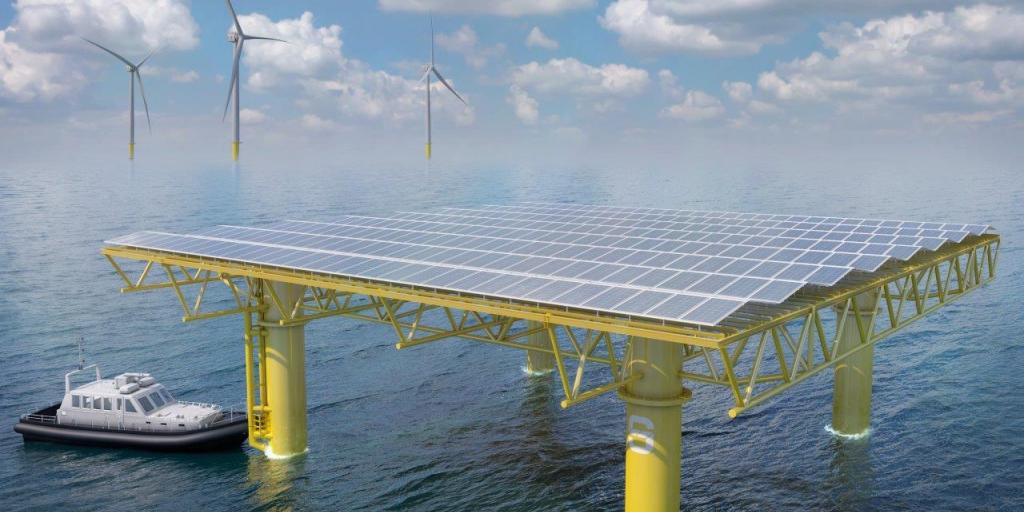Belgian companies Jan De Nul, Tractebel, and DEME have announced the introduction of SEAVOLT©, a new offshore floating photovoltaic (PV) technology that has been developed in partnership with solar, environmental, and offshore experts.
The SEAVOLT© technology can endure harsh offshore conditions while creating large surfaces protected from the waves. It offers benefits such as local renewable energy production and the ability to install the panels in offshore wind farms (where local authorities allow multi-use concessions). The modular design allows for easy adaptation to different sites and demands, and another advantage is the addition of large volumes of renewable energy capacity in a relatively short time.
Following laboratory testing, the partners, along with Ghent University, are currently developing an offshore test installation that will be launched off the Belgian coast in summer 2023. The test installation is a result of a VLAIO-funded research project MPVAQUA (Marine PV Aquaculture) that was initiated four years ago under the Blue Cluster initiative. Parallel tracks focusing on the ecosystem, environment, and cost-effectiveness are also being launched in collaboration with RBINS, supported by the Energy Transition Fund and the Federal Relaunch Fund.
Photovoltaic technology is developing faster than ever, and the need for local renewable energy production is increasing drastically. The complementarity between wind and solar technology has been confirmed globally. As authorities permit multi-use concessions and the grid infrastructure shows good potential for combined use, the addition of offshore floating solar to current and future offshore wind sites presents an opportunity to add large volumes of additional renewable energy.

